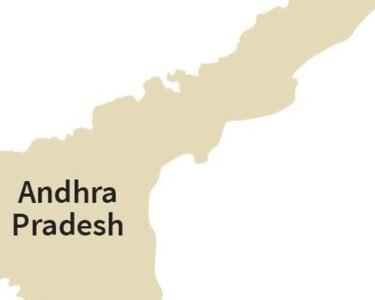In what many observers are calling a striking case of diplomatic irony, Pakistan has raised alarm bells at the United Nations over rising terrorist threats emanating from Afghanistan, even as it faces persistent allegations of nurturing extremist groups within its own borders.
During a recent address to the UN General Assembly, Pakistan’s Permanent Representative, Ambassador Asim Iftikhar Ahmad, claimed that multiple terror outfits — including the Tehreek-i-Taliban Pakistan (TTP), the Balochistan Liberation Army (BLA), and the Majeed Brigade — were coordinating attacks on Pakistani soil from Afghan territory. He called for international attention and action, warning that Afghanistan could once again become a sanctuary for global terrorism.
“This is a matter of grave concern. These groups are becoming increasingly sophisticated in their attacks, using weapons and equipment left behind by international forces after the 2021 withdrawal from Afghanistan,” Ambassador Ahmad told the UN.
He stressed that the TTP — with an estimated 6,000 fighters — remains the largest UN-designated terrorist group operating out of Afghanistan, and accused the Taliban-led Afghan regime of providing safe haven, either deliberately or through negligence.
A Grim Backdrop of Violence
The Pakistani envoy’s warnings come amid a wave of bloodshed within Pakistan’s own borders. A suicide bombing in North Waziristan on June 28 killed 16 soldiers — one of the deadliest attacks in recent years — while a separate roadside blast in Bajaur claimed the lives of five senior officials, including an Assistant Commissioner.
Pakistan has accused Afghan-based terrorists of orchestrating the recent spate of attacks, citing intelligence that points to cross-border infiltration and logistical support from Afghan soil.
But as Pakistan demands international solidarity and action against terrorism spilling over from Afghanistan, its own past continues to cast a long shadow.
The Pot Calling the Kettle Black?
Observers and analysts have been quick to point out the glaring contradiction in Pakistan’s complaint. For years, the global community — including India, the United States, and international think tanks — has accused Islamabad of harbouring and enabling militant networks that destabilize its neighbours, especially India and Afghanistan.
India’s External Affairs Minister Dr. S. Jaishankar has repeatedly highlighted how terror outfits function freely from Pakistan’s cities, with overt and covert support from the country’s military and intelligence services. In a May interview with a German publication, Dr. Jaishankar stated unequivocally: “Terrorism operates openly in Pakistan with support from the state. We have made it clear that such acts will have consequences.”
From the 2008 Mumbai attacks to continued cross-border skirmishes in Jammu & Kashmir, Pakistan’s alleged complicity in terrorism has drawn global criticism. Organizations like the Financial Action Task Force (FATF) have also previously placed Pakistan on its “grey list” for failing to curb terror financing.
Regional Tensions and Diplomatic Maneuvering
Ironically, while Pakistan asks the UN to act against threats from Afghanistan, it continues to resist meaningful accountability or reform within its own borders. Critics say that Pakistan’s latest move is part of a broader attempt to shift global attention away from its internal failings, especially as its economy reels under inflation, mounting debt, and political instability.
The backdrop to Pakistan’s plea also includes recent efforts to restart diplomatic engagement with Afghanistan. On Monday, delegations from both nations met in Islamabad for the first-ever additional secretary-level talks focused on trade, security, and connectivity. Despite the dialogue, distrust remains high between the two neighbours, with Kabul strongly denying Pakistan’s allegations of hosting anti-Pakistan terror groups.
A Dilemma for the Global Community
While it’s undeniable that Afghanistan’s security vacuum post-US withdrawal has allowed militant groups to regroup, the international community is being urged to take a more balanced view — one that holds all enablers of terrorism accountable, not just the most recent perpetrators.
Security experts argue that addressing terrorism requires confronting the structural support systems that sustain such organisations — whether in Kabul or Islamabad. “It is hypocritical for Pakistan to demand international action when it has itself been a safe harbour for terror for decades,” said a South Asia policy expert based in Washington, D.C.
Conclusion: Time for Accountability
Pakistan’s call for global action at the United Nations could have carried more weight had it not been marred by its own record of double standards and selective outrage. By sounding the alarm now, it risks being perceived less as a victim of cross-border terrorism and more as a state struggling to contain the very forces it once helped create.
As the region teeters on the edge of renewed instability, true progress will depend not just on blaming neighbours but on a shared commitment to dismantling terrorism’s deep-rooted networks — wherever they exist. For Pakistan, that begins at home.







